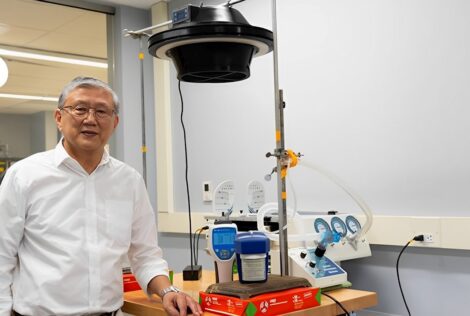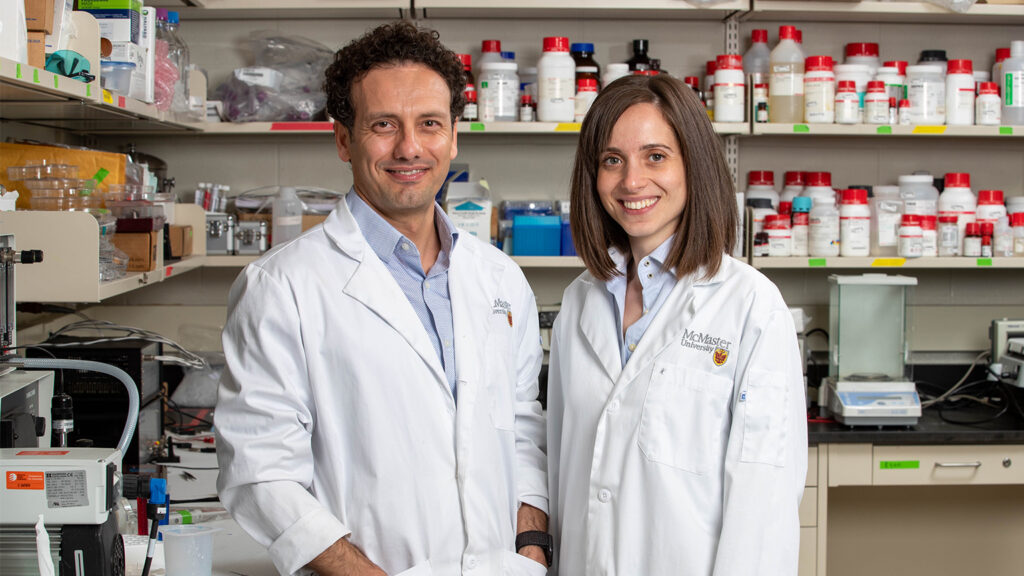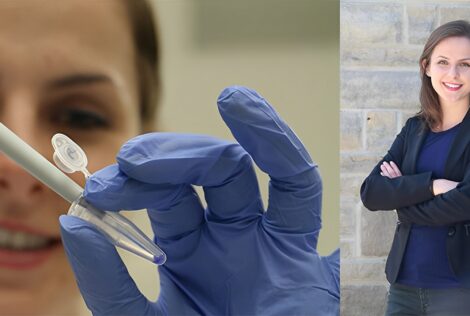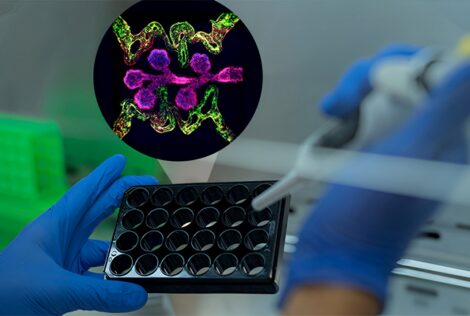

What if frequently touched surfaces like food packaging, door handles and bus railings could be coated with a plastic that repels bacteria and viruses?
McMaster engineers Leyla Soleymani and Tohid Didar, the lead creators of a self-cleaning plastic wrap called Repel Wrap, are working towards making this technology widely available.
“You can disinfect surfaces a couple of times a day, but what happens during the time in between? If you have something like the Repel Wrap that remains clean within that duration, that’s a promising technology,” says Soleymani, an associate professor in engineering physics and Canada Research Chair in Miniaturized Biomedical Devices.
Repel Wrap is a restructured plastic surface – like transparent plastic wrap – with microscopic textures that exclude all external molecules such as bacteria and drops of blood. It can be shrink-wrapped to fit different surfaces to create a protective barrier.
After confirming its effectiveness against viruses similar in structure to COVID-19, the team of engineers and health scientists are now testing the surface with the COVID-19 virus.
“We’re also developing a spray that contains the microparticles with these wrinkles and nanoparticles on it, which can be sprayed on to a variety of surfaces,” says Didar, an assistant professor in mechanical engineering and the McMaster School of Biomedical Engineering.
“Engineering is a career that has allowed me to use creative ways to solve problems – for me, that’s what this is all about,” says Soleymani.

Hear more about Repel Wrap and Soleymani and Didar’s research journeys on Big Ideas for a Changing World. Available on YouTube, Spotify, Apple Podcasts and Google Podcasts.
Read the full story on Repel Wrap on Brighter World and CNN Health.


